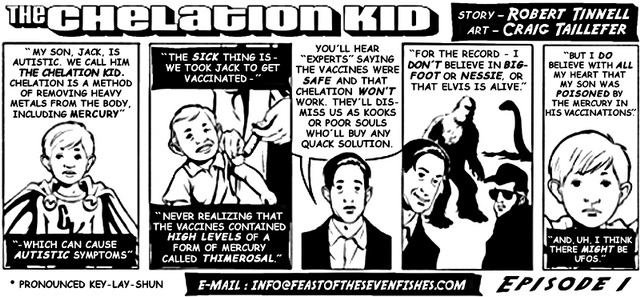I was making one of my rare but periodic attempts to watch commercial television. Sometimes I amaze myself that I have not given up, especially when I saw a few minutes of “the View.” I mean, someone has to get in there and promote stereotypes about women, and they are doing an incredible job, what with asking women involved in politics about bathing their babies or something.
I admittedly learn a great deal from the commercials.
Like Claire Danes — whom I used to consider a Shakespearean-quality actress — does not seem to be getting any good roles, because she did this incredible commercial, where her eyelashes and face were photographed every couple of weeks. Admittedly, after four to six weeks, she had pretty lush looking eyelashes compared to week 1.
Here is the prescription drug— yes prescription drug — she was advertising. On the website they have Brooke Shields, too.
Filed under prescription drugs by on Mar 2nd, 2011. Comment. ![]()
One usually thinks of a doctor as one who gives out prescription – sometimes much too easily. I’m often known as the doctor who declines to push drugs.
I take these things seriously. I’ve studied long and hard and know what drugs can do – both positively and negatively. If the risks outweigh the benefits, I can be down-right stubborn. However, I’ll always have an alternative that can help.
I’m reminded of one case where a woman wanted Chantix (varenicline) – a prescription medicine FDA approved to help people stop smoking — and I said “No.” To my knowledge and experience, the drug has some problems. The last patient I saw who was already taking Chantix asked me for a renewal. I told her that the symptoms of which she was complaining would probably disappear completely if she got off the Chantix. I never saw her a second time. Read more on Its Not Only The Smoking That Can Kill You…
Filed under prescription drugs by on Jan 27th, 2011. Comment. ![]()
NOTE: CLICK THE CARTOON AND SEE IT FULL-SIZE TO READ THE LAST PANEL
The field of alternative medicine is as wild and woolly as the old west. There are all kinds of people doing all kinds of things. Some are studied and tested, some are intuitive, and some seem to come from Uranus.
So it is no surprise that the FDA occasionally cracks down on some of the most flagrant offenders.
Please listen to someone with a lot of formal training and many years of experience in clinical trials and many treatment modalities — There are no miracle cures. If there really were, I think I could have a handle on them by now.
One hot button recently is autism. And one of the biggest misconceptions is that it is just mercury poisoning. Believe me (and a million other medical experts) – it is NOT.
There are plenty of people around who want to believe in the magic bullet. Somehow this goes hand-in-hand with believing that doctors and drug companies are hiding things that are wildly effective.
Truth, science, and the American way are effective. People are always devoted to things that will make them a lot of money. They may even convince themselves that they are on the way to miracles. Old fashioned values like responsible experimentation, even responsible observation … the heck with it.
I will not expostulate. I see it all the time. Some of my colleagues – and I mean trained and licensed MDs – seem to settle on one treatment and think it fixes everything. I suspect it is because they are basically lazy and cynical, but that may not be fair. But in my years of practice I’ve seen docs who give everybody thyroid hormone, others who firmly believe in vitamin D, the apostles of Prozac, and other things too bizarre for me to really believe. Read more on Denial, Wishful Thinking And Chelation…
Filed under Alternative Medicine by on Jan 21st, 2011. Comment. ![]()
Research is something that many people find suspicious. The mass public doesn’t know what makes “good” research and what is just plain manipulation.
Most people know that studying a lot of cases gives a more accurate picture than studying a single case – or just a few cases. But speaking as a formally trained and professional researcher, let me tell you that – contrary to conventional wisdom — it is really hard to make any sense of any kind of statistics that study a big-lot-much-HUGE number of human people.
Filed under politics, Research by on Jan 19th, 2011. Comment. ![]()
I could not believe it when the patient asked me about ketamine. I had just seen an episode of “House, MD” on one of those cable super-stations the night before and it dealt with this weird drug. I told my husband about my experiences with it during my surgical career. Then, the next day, this patient brought up the same rare drug. When I looked at him closer, it became believable. He was old enough — in his sixties — that in the swinging sixties he had surely been one of those “knowledgeable” druggies who pride themselves on knowing all about everything that could give one a buzz.
This type of person is a sort of lay-pharmacologist — someone who knows not only how each drug made someone feel, but sometimes even about class of drug and mechanism of action. Of course, this type of expert would seldom know terribly much about what the FDA thought or felt about these drugs. “I heard it works pretty well and faster than anything on depression,” he said, “and I am kind of depressed and the standard antidepressants, the crap like Prozac and Zoloft aren’t worth taking and don’t do anything. But they say that stuff works fast on depression.”
Yes, he knew his stuff so well that he may even have read some kind of FDA reports or something. Still, ketamine is not the kind of thing you can dish out in a county clinic in Noplace, California. If you want something exotic, try a university psychiatry or pharmacology department, or call or email the National Institutes of Health. I could offer the standard stuff, but not ketamine. Not me, not there.
Filed under depression by on Dec 24th, 2010. Comment. ![]()
My husband told me something that I thought was a joke, but he convinced me it was serious.
During “drive-time” he heard an advertisement for a medical marijuana dispensary on the radio. Among the many conditions it promoted marijuana as helping was eating disorders.
My thoughts went immediately to stoners with the midnight munchies making an emergency run to 7-11 for Cheetos or the late-night drive through at Burger King. Read more on Standardizing and Regulating Medical Marijuana — Who Are We Doing It For?…
Filed under medicine, News, Research, Substance Abuse by on Dec 10th, 2010. Comment. ![]()
People may look at the complex before they look at the obvious — which is a faster answer and closer to the truth. I happened to be talking and I found three more yesterday. Women. Young, intelligent, and attractive women, who did not have and did not want boyfriends. All three were part of the mental health treatment establishment.
The first time I discovered one of those was some years ago, a few cities ago, and she was a very clever and very talented psychiatric nurse. She loved her profession, and took good care of people. She loved nature and animals and plants. I believe her to have been quite attractive. She had been turning down dates because she would rather go to her gardening clubs or whatever.
She had also said, without tears or depression, that she expected she would always be alone, would move into the home for old nurses when she was old enough, and die there. She had been on Prozac for about three years. There were a few problems with this. First, nobody had ever talked to her about getting OFF Prozac. They said she might as well stay on it, since life was that good.
Actually, I have looked at data for depressed folks of varying ages. Sure, there is a risk of side effects, but nobody seems to care. I cannot remember, off the top of my head, seeing data about the recurrence of depression that suggested anybody needed to stay on antidepressants permanently.
Certainly, nobody under, say, 55 or so. And she was plenty under. I mean, there are things you can do to lessen the chance of recurrent depression — psychotherapy, even reading books. And there is the whole question of getting someone off SSRIs. I have had patients who claim it is impossible. I’ve had people come to me because the withdrawal effects were horrendous. Yet I have taken people off easily and (reasonably) quickly with natural substance regimens. It’s not impossible – you just have to know how.
That eliminates many of my colleagues. Or perhaps they keep their patients on prescription drugs to insure their return and a steady cash-flow. Naw – doctors wouldn’t do THAT!
There is another problem. There are drug side effects we know little about or may find hard to measure. I remember from my days doing clinical trials that at one time, shortly before I left the business, someone adopted a “uniform” side effect reporting system. The trouble with that was trying to fill in the blanks for the questions on the form when the patient is saying things that do not fit in the blanks.
Every one of these mental health professional women had been put on Prozac when it came out, because of the safety and efficacy. I remember, collecting data, one of the first people I gave Prozac to during clinical trials before that drug was on the market. She told me that she “felt like a zombie” and that she missed having the full amplitude of emotional expression. She missed crying at the movies, something she had genuinely enjoyed. Said she had a feeling of euphoria afterwards — a feeling of euphoria she really enjoyed. Try fitting that one on a uniform side-effects reporting system.
The three women I met yesterday are unlikely to get off their Prozac. They stood in wide-eyed disbelief of my assertions. Of course, they had just met me and know little about who I really am. Besides, people seem to have trouble taking advice for which they aren’t paying. I just reminded them as I remind patients that taking any medication is a choice, and reporting what is going on to a doctor is always a good idea.
If any of these intelligent and well-insured women had gone to a therapist, they could have ended up with some kind of verbally analytic procedure, which obviously would not help. Or maybe they would be referred for some hormone supplementation, which has biologic risks of its own. Big ones, like — cancer.
Worse yet, I’ve met two psychiatrists in my 30 years of practice who gave everybody electric shock treatment. Everybody! The first person in whom I suspected a real lack of sex interest had changed her life — the psychiatric nurse — did finally get off her Prozac. If she had any recurrent depression problems, I do not know about them.
She had a date within two weeks, and last I heard, was dating many interesting men, looking for a best boyfriend.
I am convinced that we are looking at a Prozac side effect that the system has made it impossible to measure. We probably have at least a little of the same side effect with similar drugs in the same class – such as Paxil and Zoloft. Maybe others, too.
The psychiatric nurse easily agreed her general quality of life had been diminished while she was on Prozac. She was too undepressed to notice. When she got off the drug, she suddenly noticed.
Getting a drug past the FDA takes some studies on how it gets into the body and the like. Nobody ever seems very worried about getting off a psychiatric drug. That’s been the focus of my private practice for at least the past five or six years.
For the individual, the effect is pretty evident even though I only have one clear cut example. What about the species? Is this just one of several steps driving humans to …. extinction? People change as time passes. What affected you in the past may have gone away – as many illnesses seem to do.
Spending your lifetime on a drug when you no longer need it is tragic. Or having your quality of life changed because of the way a drug reacts in your body – instead of seeking alternatives to control your problems.
I think it is worthwhile for anybody on a psychotropic drug to ask how their life has changed since they have been on a prescription medicine. We researchers have been limited to collecting information on side effects that the FDA and/or drug companies “let” us.
So don’t look toward the government or the drug companies for help.
Filed under depression by on Nov 23rd, 2010. Comment. ![]()
Well, I did not expect to have anything good to say about the FDA this soon.
We have written on QNEXA, one of those drugs compounded from previously known compounds that are devised, as far as I can tell, to make money fast by combining previously approved drugs. And putting them towards a popular indication, like weight loss. Read more on More On Qnexa Rejection By FDA…
Filed under prescription drugs by on Nov 12th, 2010. Comment. ![]()
She was an administrative type, accompanying me to a meeting to which I did not particularly want to go. I had told her about some particularly useless drugs that had been FDA approved since I don’t remember when, and she asked me the question that covered everything.
“Why doesn’t the FDA work?” Read more on Estelle On Why The FDA Is Screwed Up…
Filed under big pharma by on Nov 8th, 2010. Comment. ![]()
I was a staff psychiatrist at the Las Vegas VA, when the endocrinologist who was assigned from that august institution to take care of me told me that Meridia for weight loss would be a good idea.
Surprisingly, the first thing that came up on my search today was something from the Forbes magazine health editor. Duh, this is a business story.
When I declined Meridia, because of what he thought were “only a few”
reports of sudden death, I was packing on the weight steadily– due exclusively because of his treatment for me — which included taking a lot of insulin which obviously I did not need. After all, I had a bit much blood sugar and he never noticed it was chasing my triglycerides, and/or never saw this, although it had been starting even then to become evident to me. Read more on Harmful Drugs Are Reported As Business News — Not Health Or Medical…
Filed under Generic drugs, prescription drugs by on Oct 21st, 2010. Comment. ![]()



